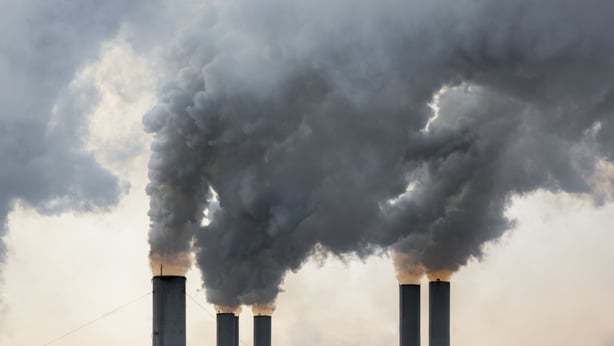The Fine Gael leader Leo Varadkar has indicated to his TDs and Senators that government formation talks may continue for another few days.
While saying the negotiations were "going well", he added that it was important to have issues agreed and clarified now, rather than let them become future bones of contention.
It's understood the Deputy leader Simon Coveney, who heads up the Fine Gael negotiating team, told the parliamentary party that areas like agriculture, housing and the economy had yet to be signed off.
Restating Fine Gael priorities, Mr Varadkar said his party wanted a good plan for economic recovery and strong commitments that there would be no increase in income tax and USC in the next budget.
Fine Gael also wants a financial support plan rolled-out within 100 days of a new government taking office for the hospitality, tourism, retail and leisure sectors.
The party is advocating what it terms a "New Care Deal" involving a reduced childcare costs and a statutory home care scheme for older people.
It also wants a well funded REPS-2 package for farmers to encourage sustainable use of the land and protection of our natural heritage.
Read: Latest politics stories
Yesterday's talks were extensive and cordial again yesterday evening but finding the exact pathway to achieving the 7% reduction is proving elusive.
Some of a more optimistic disposition believe an agreement might be reached by tomorrow or Saturday but a few of those involved believe these talks could run past the weekend.
Minister for Communications, Climate Action and Environment Richard Bruton's words in the Dáil yesterday were viewed by some as encouraging.
He spoke about seeking to emulate the high ambitions that a country like Denmark has set in this area.
However, the Green Party will, it seems, require a commitment laden with specifics that is sure to withstand any analysis from climate change experts.
Carbon emissions target 'already agreed'
A climate expert has said that the 7% reduction in carbon emissions is "not simply a Green party demand, it is an imperative thing the country has already agreed to do".
John Sweeney, Emeritus Professor of Geography in Maynooth University said it was agreed to under the Paris Climate Accord in 2015.
"It was after all a Fine Gael Taoiseach who signed us up to the Paris Agreement in 2015 which was a solemn undertaking to avoid 1.5 degree of warming globally and that's where the 7% has come from.
"The UN has found that we need to reduce global emission by 7.6% every year from here on to avoid exceeding that binding target that we as a country has signed up to.
"It is not simply a Green party demand, it is an imperative thing the country has already agreed to do and it is now necessary to take the steps that we have avoided taking over the past five years," he said.

Mr Sweeney said changes in agriculture and public transport are the critical to achieving this target.
Speaking on RTÉ's News at One, Prof Sweeney said any "proposal for government which does not do this will lack credibility unfortunately".
A reduction in methane emissions is the most important thing in the short term, Prof Sweeney said: "Any agreement has to tackle in the short term the need to reduce or methane that need not necessarily mean a dramatic culling of cattle, but rather a gradual reduction in the extra 650,000 that we have in Ireland since the milk levy was abolished."
He said the EU commission is helping countries like Ireland to change their models, from intensification of agriculture to one which rewards farmers for saving carbon, for stewardship, and for being more sustainable in the short term.
In relation to public transport Prof Sweeney said it is necessary to end fossil fuel subsidies in energy generation and discourage the use of single cars being "driven in their droves to city centres".
He said Covid-19 may "have helped ironically in changing social attitudes".
Additional reporting: Mícheál Lehane







